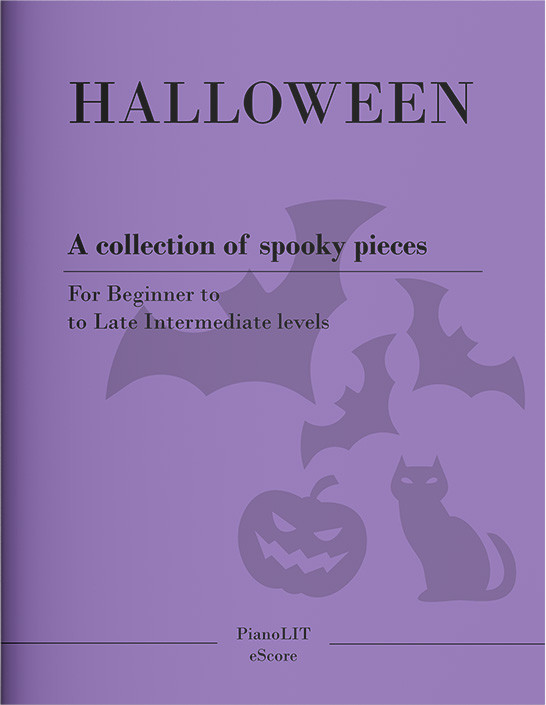The inflicting art of criticism
Most classical composers are now recognized as true geniuses, whom no one would dare criticize. But when they were alive that was a whole different story. Let's take a look at some of classical music's worst reviews.
Aug 1, 2019 • 12 min read
6519

Want a heads up when a new story comes out?
People love to hate criticism, not to mention critics. Critics are irritating, clueless, and talentless naysayers, stealing whatever temporary prestige and importance from the durable labor of real artists. But you can’t have art without criticism, or criticism without art. Any form of art has been criticized because it's art to begin with. Art is irreverent, bold, new, and it moves people, therefore it naturally receives a good amount of critiques. No feedback (good or bad), means the art wasn’t worthy at all, and, in most cases, wasn't even considered art.
We are all victims of criticism and we do it repeatedly. A new song, a new artist, the band playing at the local bar, an article in the newspaper, a friend speech and more. All of us have strong opinions and we are confident in our rightness. But what if we are wrong? It's striking to discover how many (now famous) classical composers have been ripped to shreds by critics of the time. No one excluded.
Beethoven
Yes, not even he was immune from the harsh and direct criticism throughout the decades following his death. Particularly the work of his last years, which is now renowned to be among the most profound and intricate music ever composed.
“I confess freely that I could never get any enjoyment out of Beethoven’s last works. Yes, I must include among them even the much-admired Ninth Symphony, the fourth movement of which seems to me so ugly, in such bad taste, and in the conception of Schiller’s Ode so cheap that I cannot even now understand how such a genius as Beethoven could write it down. I find in it another corroboration of what I had noticed already in Vienna, that Beethoven was deficient in esthetic imagery and lacked the sense of beauty. “ - Louis Sphor, Selbstbiographie, Cassel, 1861
“Beethoven took a liking to uneuphonious dissonances because his hearing was limited and confused. Accumulations of notes of the monstrous kind sounded in his head as acceptable and well-balanced combinations.” - A. Oulibicheff, Beethoven, ses critiques et ses glossateurs, Paris, 1857
“Beethoven always sounds to me like the upsetting of bags of nails, with here and there an also dropped hammer.” - From John Ruskin’s letter to John Brown, February 6, 1881
"Beethoven was not a man of the fugue, and he was never less so than in this nightmare, a raw and undigested mess" - W. de Lenz referring to the Finale of Sonata Op. 106, in Beethoven et ses trois styles, Paris, 1855.
Does it really sound nightmarish? Listen and judge for yourself.
Brahms
Brahms' talent had already been recognized by R. Schumann, nonetheless, he received some terrible reviews. Including from a fellow composer, Tchaikovsky.
"I played over the music of that scoundrel Brahms. What a giftless bastard! It annoys me that this self-inflated mediocrity is hailed as a genius. Why, in comparison with him, Raff is a giant, not to speak of Rubinstein, who is after all alive and important human being, while Brahms is chaotic and absolutely empty dried-up stuff." - Tchaikovsky's Diary, an entry made on October 9, 1886
"All I heard of the program was my special aversion, Johann Brahms, his piano concerto, op. 15, and the piano concerto op. 83. Brahms seems to appeal to those curios folks whose minds are made in bits carelessly joined or not joined at all. Of the two concertos, the one in D minor is distinctly less abominable than the other, but neither contains much genuine music." - J.F. Runciman, Saturday Review, London, December 3, 1898
Apparently, critics in the US weren't crazy about his music either...
"Lovers of Brahms were much disturbed by large numbers of people leaving the hall between the movements of the C minor Symphony... It must be admitted that to the larger part of our public, Brahms is still an incomprehensible terror." - Boston Evening Transcript, November 16, 1885
Let's listen to the abominable Brahms's piano concerto op. 83. It sounds pretty decent to me.
Liszt
The virtuoso pianist and composer was as much loved as he was hated. The grueling comments made to him and his music stand out, being among the most vicious of them all.
"Liszt is a mere commonplace person, with his hair on end, a snob out of Bedlam. He writes the ugliest music extant." - Dramatic and Musical Review, London, January 7, 1843
"Something about Faust by Liszt, rubbish that gave one a sensation like that produced by eating sour apples." "We were afflicted by Préludes, Poème Symphonique by the miserable Liszt. They set my teeth on edge." - George Templeton Strong's Diary, February 23, 1867
"The Piano Concerto in A major by Liszt consists of one movement only, but this includes within itself no less than seven changes of time and expression... A more chaotic effect could hardly have been produced had the notes been drawn, haphazard, out of the toy known as the musical kaleidoscope. Why was such trash allowed to figure in the program? Are instrumental soloists allowed to play whatever they choose?" - Sporting News, London, November 28, 1874
"Bülow began with Liszt's B minor Sonata. It is impossible to convey through words an idea of this musical monstrosity. Never have I experienced a more contrived and insolent agglomeration of the most desperate elements... Here all criticism, all discussion must cease. Who has heard that, and finds it beautiful, is beyond help." - Eduard Hanslick, 1881
We close the case against Liszt with this last strong statement by a reviewer from a London magazine, The Orchestra, in 1886:
"I beg respectfully to suggest to Liszt and all 'musicians of the future', get them carefully packed in air-tight boxes (like those awful preserved peas we are occasionally condemned to eat), and leave in their wills a stringent regulation that no rash hand shall bring them to light until at least 1966. We shall all be dead, then, my friend, and as for our descendants, qu'ils arrangent!* " - The Orchestra, London, March 15, 1886
* qu'ils arrangent = they'll manage

Prokofiev
It's easy to assume that a revolutionary and modern composer like Prokofiev would attract many negative criticisms from the crowd. And indeed he did.
"Crashing Siberias, volcano hell, Krakatoa, sea-bottom crawlers. Incomprehensible? So is Prokofiev." - Musical America, New York, November 20, 1918
"Mr. Prokofiev's pieces have been a contribution not to the art of music, but to national pathology and pharmacopeia... We do not refer particularly to the pianoforte solos composed and played by Mr. Prokofiev, for they, we are sure, invite their own damnation because there is nothing in the to hold attention... They are simply perverse. They die the death of abortions." - H.E. Krehbiel, New York Tribune, December 12, 1918
"Chaos, coarse naturalism, a complete absence of melody, harmonic muddiness and bad taste, characterize this thoroughly vicious work." - Sovietskaya Musica referring to the opera The Tale of a Real Man, Moscow, December 1948
"One of the worst ever was exhibited at the Aeolian Hall yesterday. His name is Serge Prokofiev... He played his own compositions, presumably those which he considers his best, that is his worst: four etudes, his second sonata, a prelude, a scherzo, a gavotte, and a Suggestion Diabolique... it is the same old story: 'When you have nothing new to say, camouflage your inability by pelting the hearer's ears with cacophonies. The recipe for this sort of composition is as simple as that for boiling an egg. Write anything that comes into your head no matter how commonplace. Then change all the accidentals, putting flats into the place of sharps, and vice-versa, and the thing's done." - New York World, November 21, 1918
How does this 'boiled egg' sound to you?
•••
It's certainly the case that artists do well to ignore the nastiness and to simply continue creating, but it's also naive to think that negative reviews have no effect on their psyches or careers. Critics should consider what takes to recover from such wounds before inflicting them.
It's crucial for critics to acknowledge their activity as the personal enterprise that it is. Therefore the critic should always submit his/her own judgment into questioning first.
We thrive on negative criticism, which is fun to write and to read. But the bitter truth we critics must face is that, in the grand scheme of things, the average piece of junk is probably more meaningful than our criticism designating it so.
There's no particular method for practicing criticism, no technique to prescribe and no tone to recommend, any more than there is for art. It's a matter of sensibility and of sensitivity.
•••
Closing out with a final, borderline comic, review:
"Tchaikovsky’s First Piano Concerto, like the first pancake, is a flop." - Nicolai Soloviev, St. Petersburg, November 13, 1875

- Lexicon of Musical Invective: Critical assaults on composers since Beethoven's time. Nicolas Slonimsky (1953). https://www.amazon.com/Lexicon-Musical-Invective-Composers-Beethovens/dp/039332009X
- How to be a critic. Dwight Garner. The New Yorker. https://www.newyorker.com/books/page-turner/how-to-be-a-critic
- On art as criticism and criticism as art. Noah Berlatsky (2016). Medium. https://medium.com/the-establishment/on-art-as-criticism-and-criticism-as-art-c3823dc5fd12


